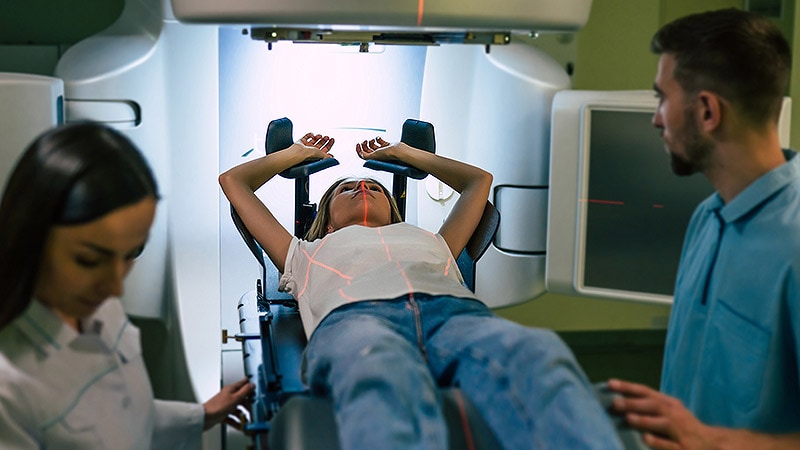NICE has approved atezolizumab plus bevacizumab, carboplatin and paclitaxel as an option for metastatic non-squamous non-small-cell lung cancer (NSCLC) in adults:
- Who have not had treatment for their metastatic NSCLC and whose PD-L1 tumour proportion score is 0-49%, or
- When targeted therapy for epidermal growth factor receptor (EGFR)‑positive or anaplastic lymphoma kinase (ALK)‑positive NSCLC has failed.
The treatment is only recommended if atezolizumab and bevacizumab are stopped at two years of uninterrupted treatment.
The clinical effectiveness evidence for atezolizumab plus bevacizumab, carboplatin and paclitaxel compared with bevacizumab plus carboplatin and paclitaxel came from the randomised, open-label, phase III IMpower150 trial. IMpower150 included adults with untreated NSCLC (with tumours expressing no EGFR- or ALK-positive mutations) and adults with EGFR‑positive or ALK‑positive NSCLC and an ECOG performance status of 0-1 who had already received targeted therapy.
At a median follow‑up of around 20 months, the results showed a statistically significant difference in overall survival between participants receiving atezolizumab plus bevacizumab, carboplatin and paclitaxel, compared to bevacizumab plus carboplatin and paclitaxel (19.8 vs 14.9 months; HR 0.76; 95% 0.63-0.93; P=0.0060). Median progression-free survival was 8.3 month vs 6.8 months (HR 0.59; 95% CI 0.50-0.69); P<0.0001).
An indirect comparison of studies found atezolizumab plus bevacizumab, carboplatin and paclitaxel is associated with improved survival compared to pemetrexed plus carboplatin or cisplatin, with or without pemetrexed maintenance.
NICE concluded: “Atezolizumab plus bevacizumab, carboplatin and paclitaxel meets NICE's criteria to be considered a life-extending treatment at the end of life. There is uncertainty about the company's long-term survival estimates, especially for people with EGFR- or ALK‑positive NSCLC. But including the most plausible assumptions and the commercial arrangements, the cost-effectiveness estimates are within what NICE normally considers acceptable for an end-of-life treatment.”



